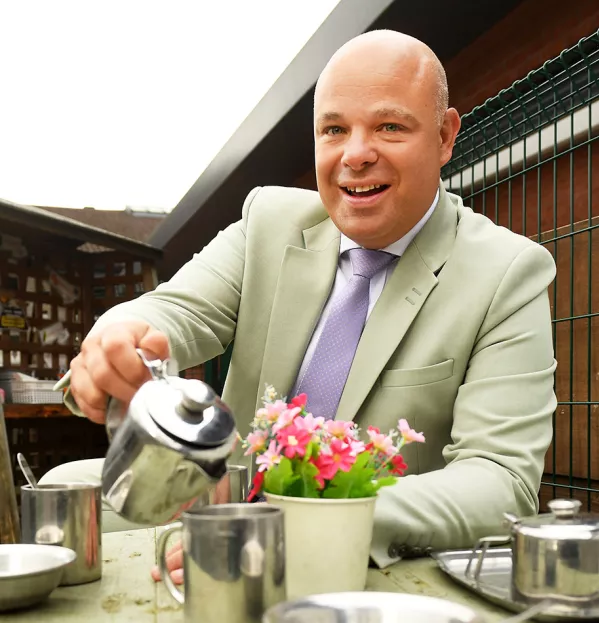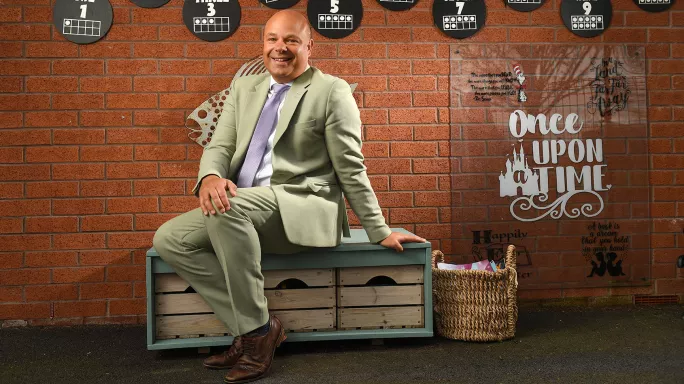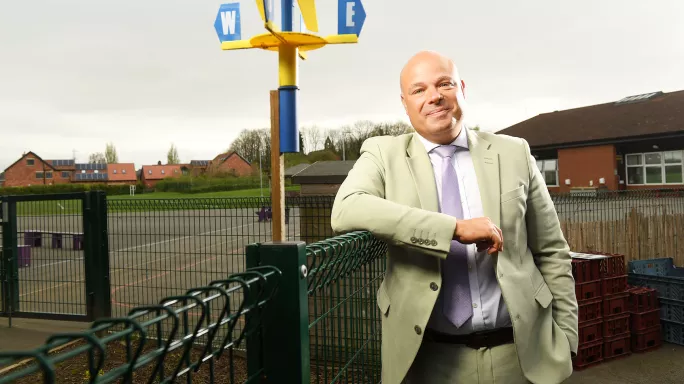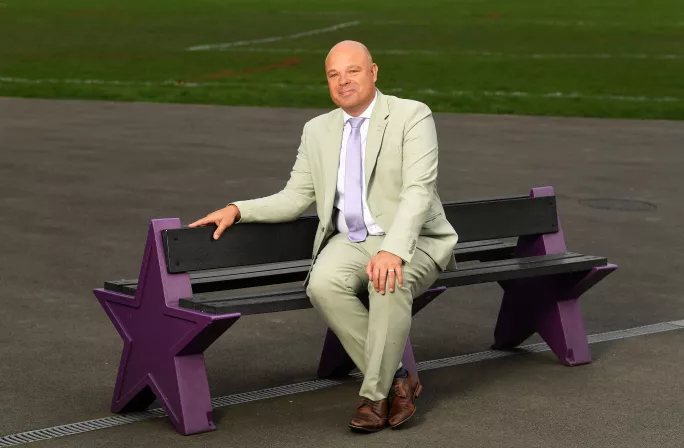- Home
- Leadership
- Strategy
- 10 questions with...Lee Wilson
10 questions with...Lee Wilson

Lee Wilson is the CEO of Outwood Grange Academies Trust, a multi-academy trust of over 40 schools in the North of England. Wilson took over from previous leader Sir Martyn Oliver after he left to take on the top role at Ofsted.
Wilson was previously the trust’s deputy chief executive and before this spent 10 years as chief executive principal of the trust’s primaries, responsible for the overall leadership of Outwood schools for younger pupils.
1. Who was your most memorable teacher and why?
At secondary school, I had an English teacher called Ms Clapperson and a foreign languages teacher for French and German called Mrs Callepio. I loved being in the environments they created. They were the biggest influence I had in everything moving forward. First of all, the influence of being a teacher and secondly the subjects that I went on to take at A level.
The teaching was not just a job for them and you saw that embodied in them every day - it was about their love for the subject and how they transmitted that in the classroom. You could see that being around kids energised them.
2. What were the best things about your time at school?
The best bits of school were those that went beyond the classroom. I went to a school that had a really strong culture of extracurricular activities, which invested in every child’s talent. It built a strong community and every part of it built my character.
3. What were the worst things about your time at school?
I loved the tapestry of what education was about. As you grow up and get older in the system, you have to start refining that.
I enjoyed all the subjects, even, if I’m being honest, geography. Although I do think we sometimes narrow down too early. There’s a bit of a fear of missing out. You look at your mates going on the history field trip and think I would have liked to have done that. I would have liked to have kept the breadth and balance for longer.

4. What are you proudest of in your career?
Establishing the primaries within the trust. Outwood is most known for the work that it does in secondary schools, but building our primary phase is the trust’s next focus.
I joined Outwood when we sponsored our first primary school - building it from the ground up. We started from three in Wakefield and grew to 13.
What I’m doing now is looking at the secondary sector through the lens of what primaries have done and thinking about the point of transition within primary and secondary - we should and can do more to extend it.
5. And what do you regret?
I learned a big lesson in my career when I was head of a children’s centre. I think we all know it but it meant I appreciated the complexity of a child’s life more.
One of the things I learned is that sometimes it is really challenging to bring all of the people around the table that a child and a family need in order to get the best from their life.
6. What is the best thing about the education system?
We are probably at a point where we are the most evidence-based that we have ever been in terms of teaching and learning.
I look at my early life as a teacher and I went through so many fads, fashions and initiatives, and a lot of it without a shred of evidence but we did it because we thought this next thing could be the silver bullet.

Teachers’ time is precious and children only get one chance; they can’t be used as an experiment to see if something will work. I want to make sure that the hours that they’re in school are the most impactful they can be against the evidence.
7. What is the worst part about education?
There is not enough positive narrative around recruitment - it’s always been a hard job but it is one of the most rewarding.
If we do not promote teaching as an attractive career then we’re never going to recruit the future people we need. The government has got to do that but we have to play our own part in the sector as well.
8. What would you do if you became education secretary tomorrow?
Review the whole curriculum and the performance measures that sit behind it to ask if it is really preparing children for the world they will operate in as adults.
Have we got the spotlight on the right things? The world in which the national curriculum was written in 2014 is already a world away.
I would also do more regular reviews with experts around the table, remaining consistent and doing smaller iterations.

9. Who has made the biggest difference in education in the past 12 months?
I don’t think you should pick one person. Making a difference is about the best of every organisation that’s collaborating, and putting that before competition.
It is about giving into the system rather than financially benefiting. If we took the best of what every single organisation did, individuals would build some exceptional curriculum models to the benefit of all children.
10. Finally, what are the most important lessons you have learned from doing your current job?
The education and development of the child is a partnership between home and school. It’s how we get to the space where we work to understand each other as that influential partnership in a child’s life, removing barriers like making school a more accessible place when parents may have had bad experiences with school themselves.
It’s also about me thinking about my family. Every day I do what’s right for other people’s children, but it can never be at the expense of my own children. This job will fill the space of whatever hours you choose to give. Your support mechanisms will be around far longer than your job ever will be.
For the latest education news and analysis delivered directly to your inbox every weekday morning, sign up to the Tes Daily newsletter
You need a Tes subscription to read this article
Subscribe now to read this article and get other subscriber-only content:
- Unlimited access to all Tes magazine content
- Exclusive subscriber-only stories
- Award-winning email newsletters
Already a subscriber? Log in
You need a subscription to read this article
Subscribe now to read this article and get other subscriber-only content, including:
- Unlimited access to all Tes magazine content
- Exclusive subscriber-only stories
- Award-winning email newsletters
topics in this article



